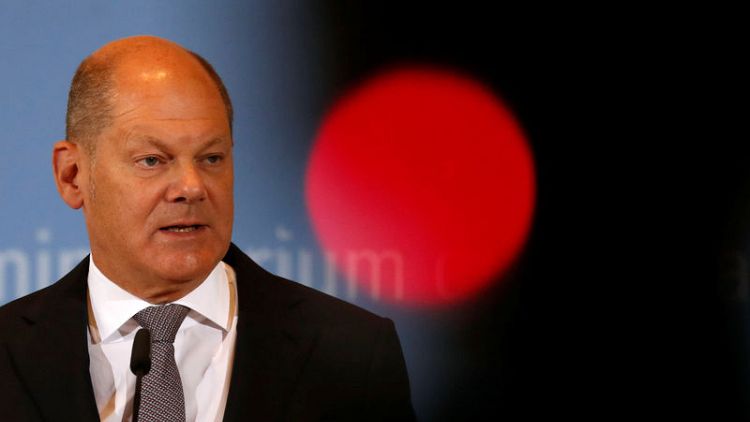BERLIN (Reuters) - Germany has slashed its estimate of tax intake because of weaker growth, the finance ministry said on Thursday, leaving the government with limited room for additional fiscal measures to counter a slowdown in Europe's largest economy.
Revenue estimates for 2019 were cut to 793.7 billion euros (£685.84 billion) from 804.6 billion euros. From 2019 through to 2023, estimates for all state levels were for an intake 124.3 billion euros less than was forecast in November, a tax estimate document published by the finance ministry showed.
Over the period 2019-2023, the federal government will have some 70.6 billion euros less than the previous projection called for, the figures showed.
The weaker growth outlook has partly been taken into account by Finance Minister Olaf Scholz in the draft budget plan he presented in March. It means that the budget faces a shortfall of 10.5 billion euros until 2023, the finance ministry said.
"The government will have to work hard to make up for the shortfall and everybody will view this as a joint effort," Scholz told a news conference.
Scholz, a Social Democrat, said that the German economy was facing weaker growth but it was not heading towards a crisis and no additional fiscal stimulus was needed.
"We already have an expansionary fiscal policy in place. And we will stick to this," Scholz said, adding that the government would continue to refrain from taking on new debt.
Scholz rejected calls from Economy Minister Peter Altmaier, a confidant of conservative Chancellor Angela Merkel, to lower taxes for companies. "I'm against a race to the bottom when it comes to corporate taxation globally," Scholz said.
The minister added, however, that the government would stick to its plan to support corporate research and development with incentives worth 1.25 billion euros per year. The cabinet is expected to pass the draft law next week.
(Reporting by Michael Nienaber and Joseph Nasr, editing by Larry King)



